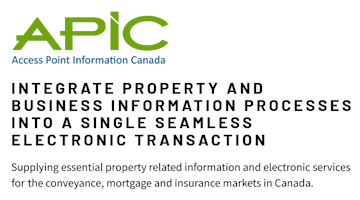At some point in time, technology has disrupted every industry including recruitment. With more touchpoints across a multitude of platforms, companies are using technology to build a compelling employer brand, support the candidate experience and analyze their hiring team’s success.
In fact, an HR Service Delivery Survey reported that technology plays a key role in hiring in 92 percent of large companies, 77 percent of medium companies and 54 percent of small organizations.
A few of the most popular platforms include:
- Assessments. According to Harvard Business Review, 76 percent of organizations with more than 100 employees rely on assessment tools. These tools, like our Emergenetics Selection Program (ESP), test for a variety of workplace tendencies. Some of the most common are cognitive ability, work ethic, motivation and personality.
- Video interviewing. Between 40 – 60 percent of companies use live or recorded video interviewing for hiring, which can improve the candidate experience by making it easier to interview. When candidates record interviews, it can save the hiring teams’ time by allowing them to review on their schedules, and it can save money, particularly if the company pays for candidate travel expenses.
- Applicant tracking systems. There has been significant growth in applicant tracking systems with 26 percent of companies using them to assess hiring metrics and manage candidate recruiting, hiring and onboarding.
- Social recruiting. Social media allows employers to showcase their brand and help HR teams find talent. Nearly 60 percent of employers have used social media to successfully hire candidates.
- Resume screening technology. This technology reviews resumes for keywords deemed relevant to an open position. When a company receives a large number of applicants, resume screening can make a recruiter’s life much easier.
- Mobile recruiting. 70 percent of people use their cell phones to look for jobs, so mobile job boards and applications are extremely important.
This list may cause an HR professional’s head to spin, especially when you consider that there are hundreds of providers for these technologies – and the list is growing.
Still, when incorporated properly, hiring technology can streamline and standardize the hiring process, reduce reliance on “gut” instincts, provide relevant statistics to demonstrate success and help hire the right people.
Technology isn’t going away, so the best thing to do is embrace it. The question is: How do you prioritize an ever-growing list of technologies?
These are our tips for recruiters and HR professionals:
1. Have a clear understanding of your goals and measurements.
To choose the right technologies for your needs, start by identifying objectives as an HR team and as a company. Once a team is clear on what they want to accomplish and how to evaluate success, they can determine which technologies will get them there – and identify a list of relevant requirements to assess the tools against.
2. Determine where you have hiring process breakdowns.
Figuring out where to begin can be difficult. Start by assessing issues in the existing hiring process. Does the difficulty lie in finding qualified candidates or in the application? Social recruiting could help in finding qualified candidates while a streamlined applicant tracking system may make sense in smoothing out the application process. Or, is the challenge in resume reviews or assessing soft skills? Resume screening can help tackle the candidate resume review process and a hiring tool like ESP can help in streamlining the review process and assessing soft skills.
Once problem areas are identified, it is easier for teams to prioritize technologies that address these concerns.
3. Learn what technologies can do.
How many of us have purchased a tool and used it for one thing – only to realize two years later that they have features that would have accomplish other goals as well? As an example, some of our clients think specifically about ESP as a hiring tool when in fact it can be used to support career pathing and onboarding in addition to assessing motivations, aptitudes and work ethic. Take the time to truly understand the tool, and stay current on its features and those of its competitors
4. Don’t forget the human element.
Remember that technology is part of the hiring process – not the whole process. Sometimes, when we meet with managers who are interested in our hiring assessment, they ask if ESP will give them a yes/no answer on a hiring decision. This is something we don’t offer, as we believe you need to be wary of using technology for a yes/no decision.
If you have a candidate with a 90 percent job fit versus one with 79 percent, you should interview both applicants to understand the differences between them. It may be that the 10 percent misalignment of your 90 percent job fit candidate relates to factors that would significantly impact the candidate’s success, while the 21 percent of misalignment for the other applicant is due to less problematic factors.
Tools like ESP can help you combine the benefits of technology with the human element. ESP highlights the areas of misalignment from candidates, so talent acquisition teams can pay particular attention to potential challenges for the new hire, tailoring interview questions and digging into the results of the assessment. Rather than make a yes/no decision based solely on ESP results, the results can be used to determine if these issues would have a material impact on job fit.
Always remember that technology is not a substitute for human interaction in the hiring process. It should be used to support human interaction.
When you consider these four factors, you will be well on your way to finding the right technologies to support your organization’s needs and integrating these programs so that your recruiting process runs smoothly, attracts the right candidates and helps you successfully hire them.
If, in the process of following steps 1 – 4, you have any questions about how ESP could support your company’s needs, please contact me at [email protected].
Kelly Fullerton
Director of ESP
Emergenetics International




 muniSERV is Canada’s leading online solution for helping municipalities and professionals connect. We help municipalities save time and money searching for the consultants & CAOs they
muniSERV is Canada’s leading online solution for helping municipalities and professionals connect. We help municipalities save time and money searching for the consultants & CAOs they 




